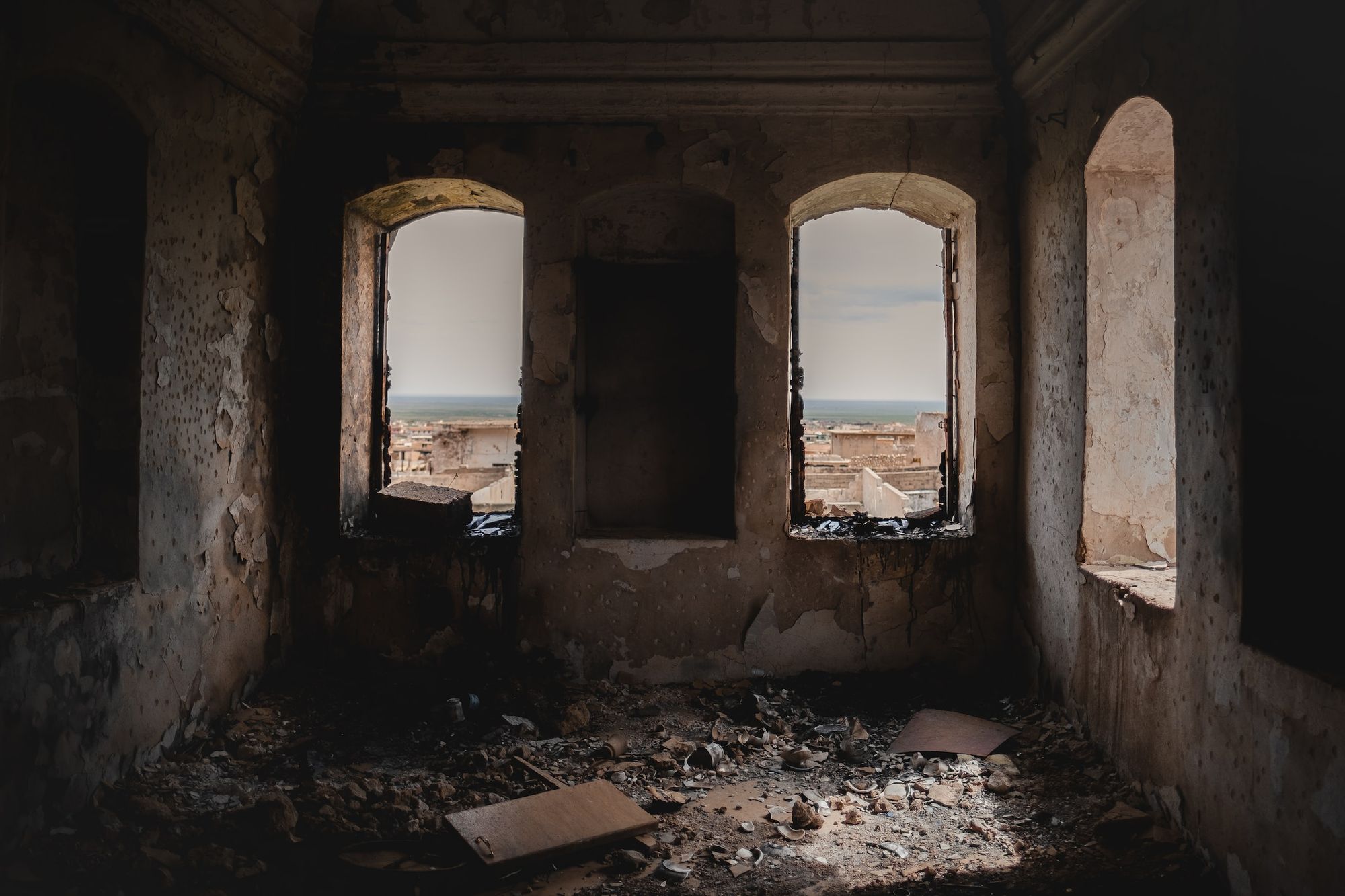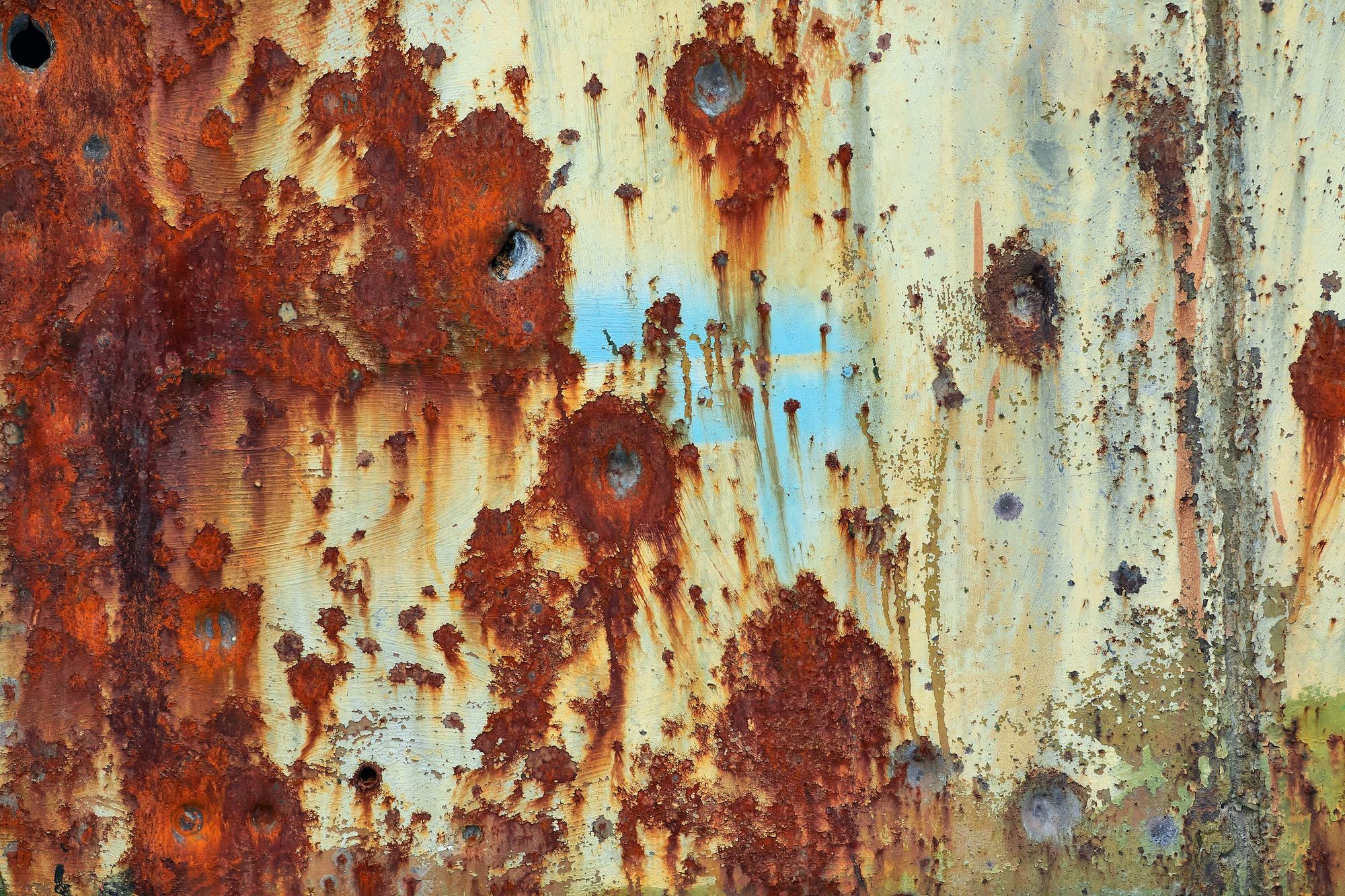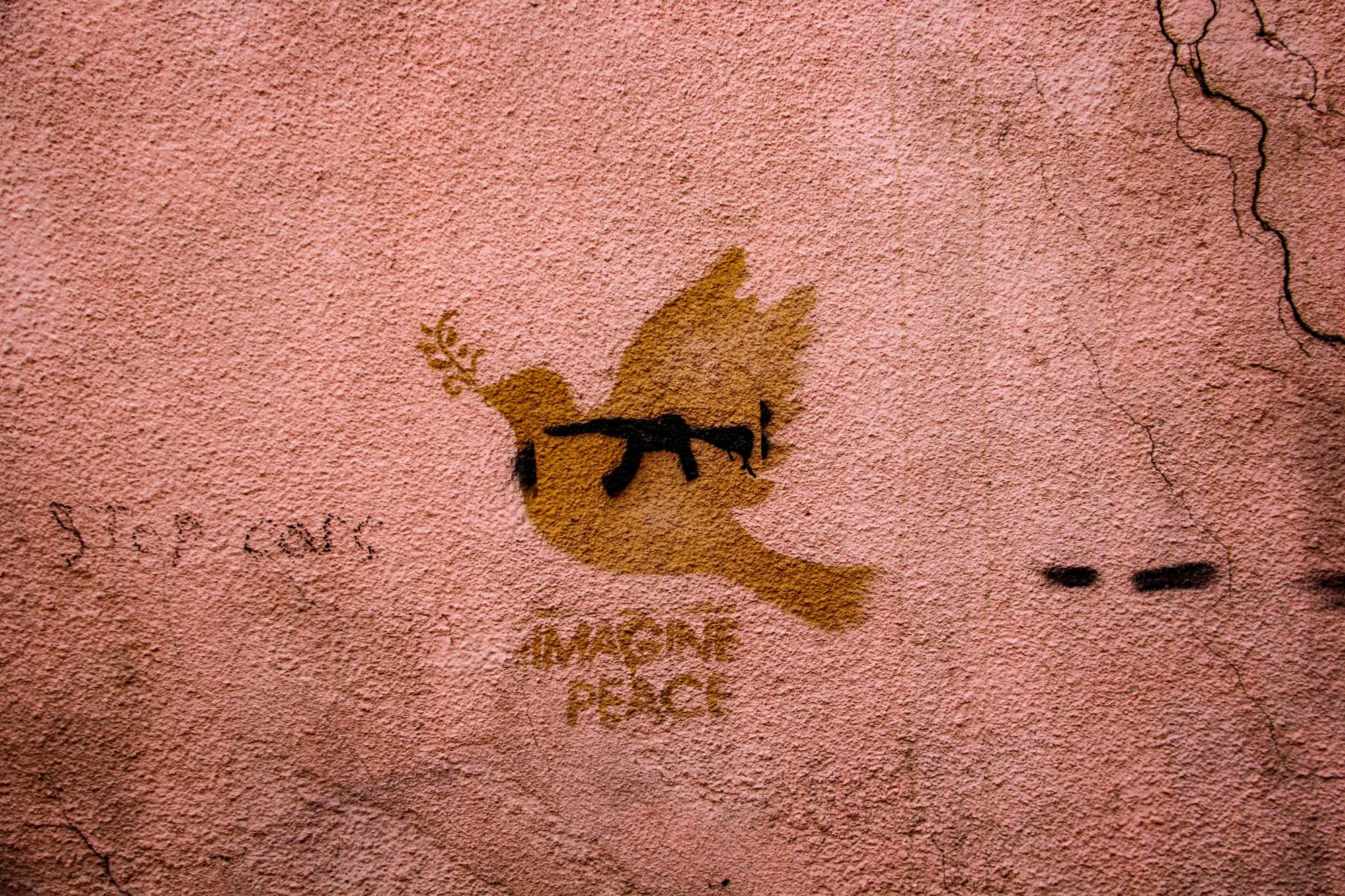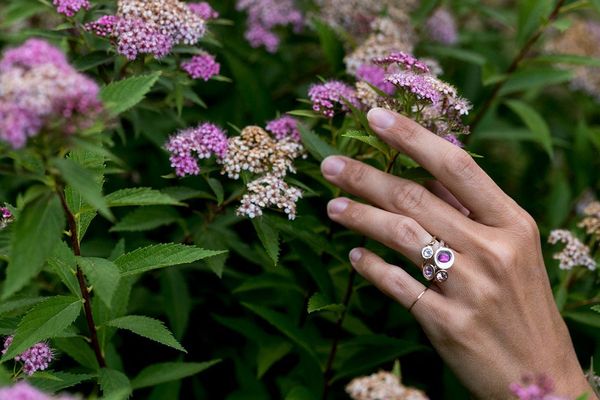After the collapse of the USSR, Georgia was able to declare independence, but apparently was threatened by the Russian Federation to make Georgia again under its influence—Nino Kotolashvili, Georgian historian about the Russian-Georgian War, imperialistic influence and Caucasian perspectives. Interview.
Georgia's historical position in the Caucasus is unique: is it a Western or an Eastern civilization?
Georgia indeed has unique location in the Caucasus. Georgian culture is mixed with Western and Eastern influences. And in the context of Georgia’s Euro-Atlantic aspirations it is ongoing discussion whether Georgia is Western or Eastern civilization. If we judge with pure geography, Georgia has no direct boarder with the West – it is only the Black Sea that connects us to Eastern European countries. Geography says that Georgia is Eastern civilization, but civilization is far more than geography – it is choice of values, policies and culture. The West and East in different forms of its existence were clashed for 3.000 years, Georgia and the Caucasus were the edge of these clashes. However, Georgia was always leader in the region, whose side would Georgia stand mattered. First choice Georgia made to stand with Western civilization is adoption of Christianity in 4th century, which was political decision from side of Georgia after Roman Empire officially made Christianity state religion. It then defined Georgia as part of Western civilization forever. Georgian feudal kingdom went under the same processes as other European kingdoms due to Christian religion and its social-political structure. By adopting Christianity Georgia virtually became part of Western Civilization. During the Crusade wars it was tradition that European countries would inform Georgian kings before starting the military campaigns – Europe was aware that in the East they had Christian supporter as Georgia. The direct connection with West civilization for Georgia was closed when the Ottomans seized Constantinople in 1453. Since then Georgian kingdom was under the Eastern civilization influence, which was Islamic. Georgian people kept their identity through Christianity. In 18th -19th century in the region appeared new actor – Russian Empire, which officially was Christian Empire and pretended that after collapse of Constantinople it was third Rome.
Back then Russia was similar to other European Empires, which had connections with Europe. Thus, Georgia chose to be under the protection of Christian Empire in order to be part of Western civilization again. Georgia choosing Russia in 18th century again choose the West. In 1801 Russian Empire canceled kingdom in Georgia and made it their province. However, the Imperial Russia was Europeanized Russia, the tendencies what was happening in 19th century in Europe was reflected in Russian Empire and through Russian Empire in Georgia. Today, many Georgians do not want to realize that Georgian cultural nationalism was born in Russian Empire. Georgia actually separated from Russia after Bolshevik Revolution. Bolsheviks occupied independent Georgia and it became part of the USSR, which refused being part of the Western civilization and created 70-years anomaly, which opposed the West and its values.
After collapse of USSR, Georgia was able to declare independence, but apparently was threatened by Russian federation to make Georgia again under its influence. But for Georgia historically the alliance making principle is choosing the Western civilization. And Russia, which has chosen different way of civilization “Russian way”, is no more in the interests of Georgia. This discourse explains the Euro-Atlantic aspirations of Georgia and why we distanced from Russia.

How can the historical crimes of the Russian occupation be explored from such a time perspective with the tools of a historian?
Russian occupation of Georgian territories is mixed with ethnic conflicts inside Georgia and the process does not start only in 2008 and has many layers – it is very complex. Thus, as a historian to research the 2008 conflict between Russia and Georgia, I would start from 1991, when Georgia becomes independent state and first ethnic conflicts starts. We can observe Russian influence even in that time and crimes that Russia did towards ethnic Georgians, who died and who became refugees in their own country. Its is a living memory, which is kept since the Russian crimes and the main tool for this is oral interviews with them, also there are some official documents and voice and video proofs, which can be used by historians to describe Russian war crimes towards Georgian people.
More specifically, in 2008 Russia made crimes that can be easily detected. First of all, they mobilized 20 000 military soldiers in tunnel Rocky, which just had been waiting for the command from Moscow to invade in Georgia. And then, they just invaded in Georgia and main goal for them was to take Tbilisi, protecting the ethnic minorities was just formal motive for Russia. It was rude violation of Georgian sovereignty. During the five-day military conflict in occupied territories Russian soldiers did many war crimes towards ethnically Georgian citizens: killing, abusing, raping, torturing, illegally arresting Georgian citizens and so on. All the proofs of the Russian war crimes Georgia represented at the Hague Court. In 2022 the Hague Court made final decision about Georgian-Russian case and Georgia won all 3.300 complaints against Russia. The truth is on side of Georgia. Besides, after 2008 war thousands of Georgian citizens became refugees in their land and Russia after the war and occupation of Georgian lands just cleansed Georgian villages in so called “South Ossetia”. It is deliberate damage to Georgian people and state.
Generally, as time passes more proofs and tools appear for historians to research and create narratives about the war. Especially, when Russia did not stop on Georgia and we today see clear intensions of Russian Federation towards post-Soviet countries.
In 2008, you personally experienced the Russian aggression in Georgia. What was the situation like from the inside?
I was born very close to the boarder-line with the conflict area called “South Ossetia”. During 2008 war I was about 9 years old child, careless and carefree, I just wanted to play with my brother, cousins and other kids. And it was sunny day of August, when all of the sudden me and my brother were only kids in our district, because all kids and parents left the village. As a kid I was unaware what was a war, violating sovereignty or other things, and I had not been analyzing what was going on fully – I just remember small moments, that caused immense emotion – fear of death. Situation before the war was quite tense in the conflict area because of separatist clashes with Georgian sides – separatists were terrorizing Georgian citizens. But for the rest Georgia situation was calm, none waited war – not people and not even the state. And the actual war started on 7th of August. On the 8th of August Georgian side responded and the morning we woke up and the country already was in a war. And I remember the night of august 9, when my father woke up me and my brother and got us outside the house – It was the first time when I saw Russian military helicopters and bomb gunners right above my house. In that moment my parents were powerless to protect us. On the same day Georgia declared the full mobilization and martial law. My uncles were sent to the front line. The country was in chaos, Georgia’s strategic infrastructure and cities were bombed and we were under the siege of Russia. People were confused, none actually understood what was going on, who started the war – Russia or Georgia? But people had not much time for discussions, everyone wanted to escape in safe place. The city Gori was bombed the most, peaceful civilians were dying and people, who loved their homelands, were forced to leave it. Russians took control over Gori, and on 11 August they moved towards Kaspi (my municipal city), where is the main highway, which connects Western and Eastern parts of Georgia. On 12th August city Kaspi was bombed and at the same day my family left the village in a roundabout way, because the main road was closed by Russian militaries. We only took photo albums and documents with us, nothing more. To the way of Tbilisi streets were crowded by cars, people took with them matrasses and blankets, some with cars and some by foot. We went in far east of Georgia, in Kakheti with my grandparents.

At the same day, that my family left the village, the ceasefire agreement was agreed between Georgia and Russia with facilitation of French president Nicolas Sarkozy. According to the agreement Russian military forces had to return to the stage before the war – fully leave Georgia. But actual war did not stop in 12 August, it continued for rest of the August. The schools were delayed to October and even in October, when I returned to school Russian tanks and soldiers were on streets. We saw them everyday way to school. The actual reason why Russian militaries stayed in my village was that they were building the road of Akhalgori (Leningori), in order to connect the city to South Ossetia. Akhalgori (Leningori) is a city in Shida Kartli, which the Russian and the Separatist Ossetian sides consider as South Ossetia. But before the war, the road to the city was only from my village, which is controlled by Georgia. However, Russia decided to keep so called South Ossetia separated from Georgia, they kept the military bases on boarder lines and started building the road to maintain full control over the occupied region connecting the city Akhalgori (Leningori) to South Ossetia. Thus, Russians stayed in Georgian controlled territory until they built that road.
Generally, the situation inside looked like shock, chaos and confusion. Later, it grew to disappointment towards U.S.A and Europe – Georgian citizens supposed that we would get more support from the West. It is true and not. On one hand, the weakness of the West caused the courage of Russia to invade in Georgia, but on another hand, it was the West that stopped Russia from Georgia’s full occupation. If back then, the West would be united, strong and more principal towards Russia, the World could avoid not only the war in 2008 in Georgia, but the occupation of Crimea in 2014 and full-scale invasion of Russia in Ukraine in 2022.
How do you see the Russian-Georgian war in the context of the events in Ukraine?
The ongoing conflict in Ukraine is continuation of the process that started in Georgia in 2008. Behind these two conflicts there is whole context, which should be considered.
After collapse of USSR the Cold War ended and former Soviet Republics in Eastern Europe started integration towards Euro-Atlantic alliances. And Russian Federation, which was legal heir of Soviet Union, at the beginning did not oppose to that. Also, the disintegration of USSR led to economic and social crisis inside Russia. For Russian society it was economic crisis as well as crisis of identity. In solution these two problems Vladimir Putin appeared, who appealed to past grace of Russia. In Putin’s point Graceful Russia was during Soviet Union, which was the winner of the Second World War, the opponent of U.S.A and second great state in the world. Putin returned Russian Federation into the Cold War discourse and this discourse became Russia’s basic political doctrine in all fields inside and outside the country. But the West denied this fact for so long time and was looking for negotiations and compromises with Russia. In this point of view, all the time Russia tried to regain influences in post-Soviet and post-Communist countries, which it considers as their area of influence.
The problem with Russia’s aspiration was that the former Soviet countries like Georgia, Ukraine, Moldova no longer saw themselves as part of Russian space – all of them strived towards the Western allies. In Russia’s neighborhood in Georgia and Ukraine happened colorful revolutions, in 2003 in Georgia and in 2004 in Ukraine. These revolutions throw away Russia’s puppet regimes and reformed the countries. It was red flag for Putin, especially when this new governments had been aggressively striving towards the West. For Putin this was tragedy for two reasons: 1. Successful examples of democratic reforms would undermine his regime, 2. It also undermined Putin’s plan for restoring the Russian influence in former Soviet countries to make Russia great again. Thus, for Russia expansion of NATO in former Soviet space was considered as security threat to them.
At the Bucharest summit of NATO in 2008, one of the topics was giving NATO Membership Action Plan to Georgia and Ukraine. Back then the West was not united and principal towards Russia. The West was cautious about giving the M.A.P to Georgia and Ukraine, they were afraid that it would cause further consequences and aggression from Russia. But they were wrong in this point. Because back then, Russia saw the West weak, because Putin recognizes only the language of power, not negotiations. Eventually, at the summit MAP was not given to Georgia and Ukraine, but there was ultimate promise that one day these two countries would become members. It was clear signal for the Russia, that the West was not going to protect Georgia neither Ukraine. And the Georgian-Russian war in 2008 was the first European war of 21th century. The process that Russia started in Georgia continues for even today and we see Russian aggression in Ukraine at the daily basis. And this aggression from Putin and Russia is not specifically directed to Georgia or Ukraine, - these conflicts are against the West, but the Western countries only after 24 February realized that Putin was not going to stop and they were the next target of Russia.
Overall, the process what we see today is deeply rooted in Putin’s political discourse, which sees Russia through the Past glory of Soviet Union. It means that all the time Russia had undeclared Cold War towards the West. The results of the war in Ukraine will decide not only the fate of Ukraine, but whole security infrastructure of the West.
Nino Kotolashvili is a junior researcher at Soviet Past Research Laboratory, Master's student of Modern Georgian History at Ilia State University. She has worked in an NGO organization as a project manager for two years. She is currently working on a research about purges in the Writers Union in Soviet Georgia and besides, she is a research assistant on a book project "Soviet Georgian History 1921-1991".

The regional leaders of craft beer | TOP5











